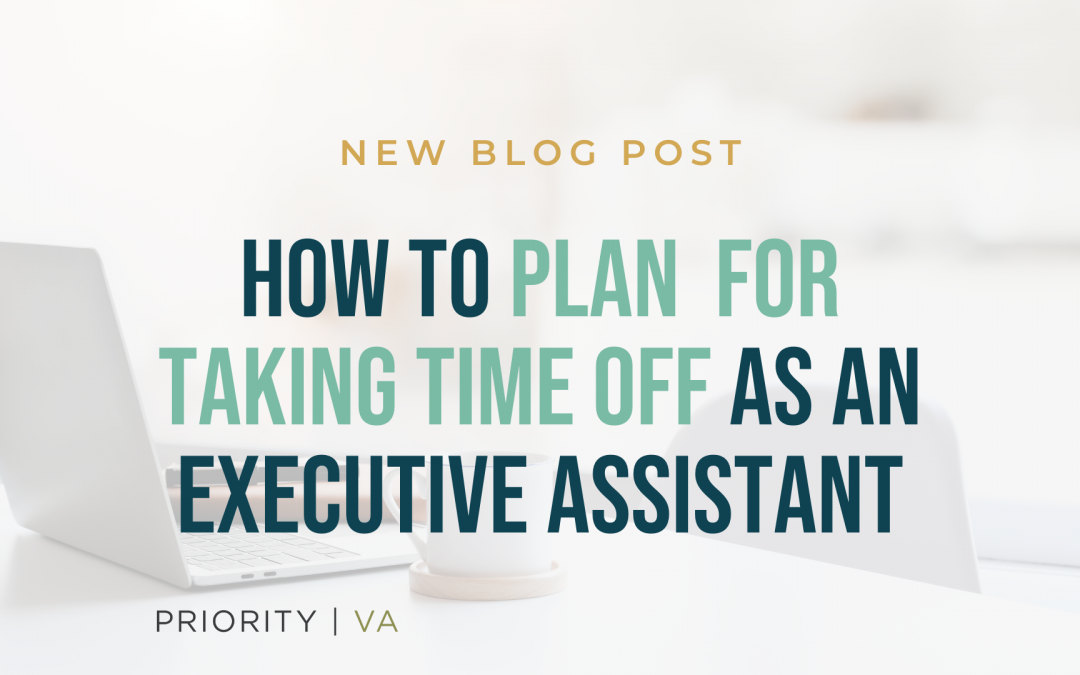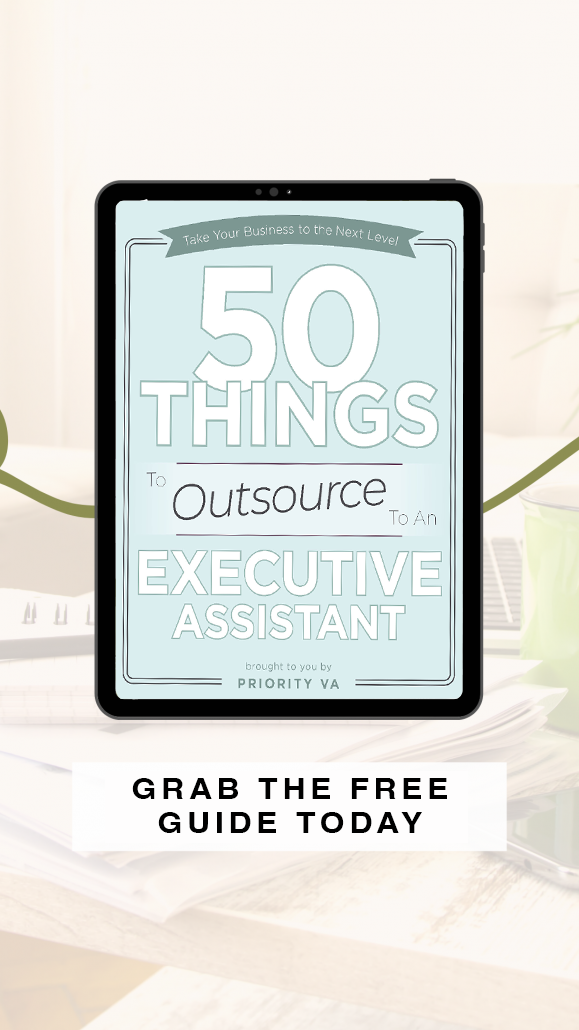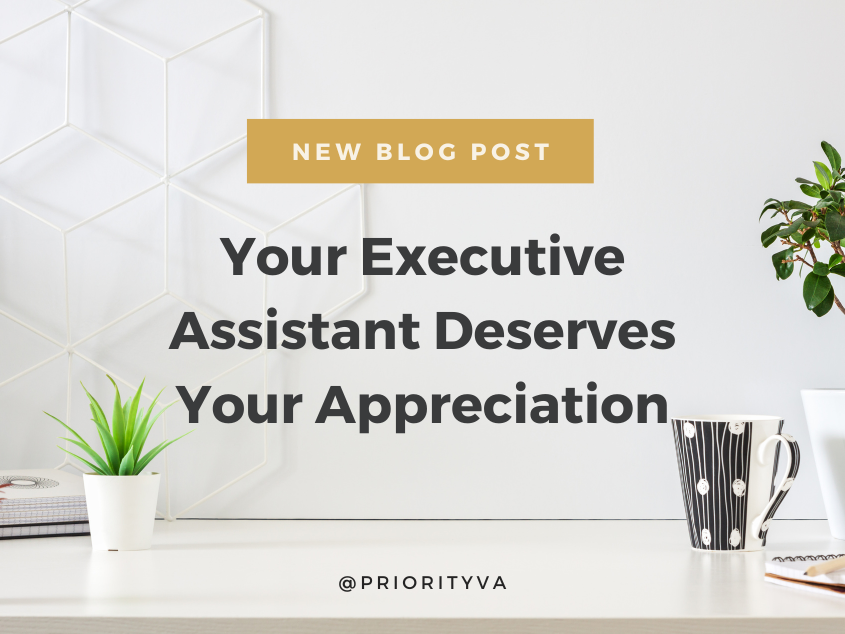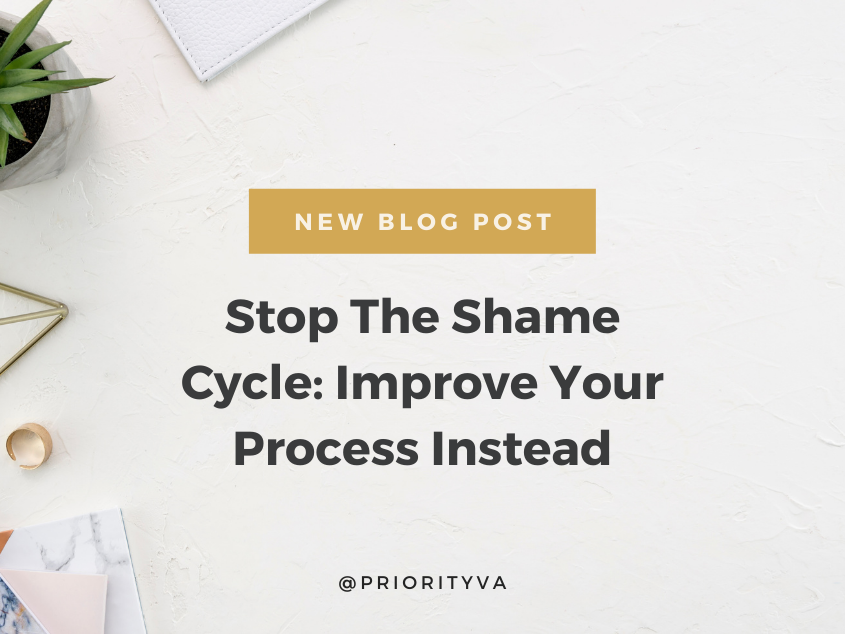You work long hours as an Executive Assistant and you’ve done it for years. There’s no doubt about it — it’s tough! But, as an EA, taking time off is just as important as working hard.
How do you balance the two? Planning ahead.
In this blog post, you will learn how to plan before taking much-needed time off, so that your Leader feels supported (and you can unplug).
You Deserve Time Off
This should go without saying, but you deserve a break. Many EAs are self-described helpers. They enjoy serving others — whether it’s their Leader or their teammates.
Unfortunately, many EAs struggle with setting and holding healthy boundaries for themselves.
When you neglect your needs and skimp on self-care, you’re prone to burnout. Or, maybe you’re the type of EA who will take time off, but will still check email or Slack messages. You make yourself available, even when you set the expectation that you’re out of the office.
This always-on behavior is damaging for a number of reasons. It prevents you from getting a mental break and it teaches your Leader that they can contact you on nights, weekends, or even on vacation!
You don’t want to set this expectation unless there is an emergency. Or, unless your Leader has communicated in advance that he or she expects 24/7 availability.
If you prepare your Leader accordingly, you should be able to unplug on nights, weekends and important events, such as a wedding, funeral, vacation and maternity leave.
Remember, time off isn’t an indulgence. It’s a necessity!
Calendar Block to Prevent Scheduling Mistakes
Your calendar is a strategic weapon as you prepare for your time out of the office. We are advocates for calendar blocking to protect your time and productivity.
In prep for being unavailable, block your calendar to prevent scheduling mishaps. Indicate when you are out of the office so nobody can auto-schedule time with you. That should be a given.
But, you should also block your calendar for the day before you leave and the day you return.
Nobody wants to have hours of meetings the day before a vacation or event. You need to protect that time to close loops and get your team prepared for your absence.
The same goes for the day you return. It’s hard enough to come back to work after time off. Calendar-block your return date to give yourself time to ease back into your routine. You’ll be glad you did.
Add Personality to Your Auto-Responding Email
You already know to set up an automatic “out of office” reply. But have you ever considered adding some personality to the message you send out?
Adding some humor can soften the frustration people feel when they contact you, only to get the dreaded automatic response.
Plus, your more “human” message can make sure people actually read your email to learn who they need to contact while you’re gone and to know when you’ll be back.
Experiment with some humor if your Leader is OK with it!
Prepare For Your First Day Back
We know you are concerned with organizing the work you will miss while you are gone, but don’t neglect to plan for the work you will have to do when you return.
It is really beneficial before an extended absence to prepare your priorities for your first day back in the office. Not only that, review your Leader’s top priorities for your return date, as well.
- What will be due on your first day back?
- How can you prepare now?
- What will be on your Leader’s plate?
- How can you anticipate their needs now for that day?
No matter how much prep you do for your return date, you will still feel inundated as you get caught up. But at least you will know you — and your Leader’s — top priorities for that day, so you can focus!
Delegate & Communicate
Now that you’ve done your prep work, it’s time to delegate and communicate expectations with your team and your Leader.
The goal is to help others feel EQUIPPED to work without you.
Be sure to discuss:
- What irons are in the fire?
- What will they be responsible for?
- What information do they need to close the loop on something?
- Where can they find passwords and process documents?
- Where did you leave off on certain projects?
- What will you pick up when you get back?
- Should something go wrong, or in the event of an emergency, how can they contact you?
- Where can they find contact information for vendors and clients?
- Who will take over responsibilities such as handling emails, phone calls, ordering supplies, etc.?
Transparency and over-communication is key. There should be no confusion about who is doing what in your absence.
Help Your Leader Feel Supported
You will need to be very intentional in your communication with your Leader. If your Leader doesn’t know where to find something, or doesn’t feel clear on what they need, they may have to contact you while you’re out of the office.
Your goal is to make sure that doesn’t happen.
Here are some tips to help your Leader feel taken care of:
- Talk through their calendar. What meetings or events will happen while you are gone?
- Ask what they have questions about. Do they have what they need to accomplish what’s on their calendar?
- Walk them through their top priorities during your absence. Confirm their top priorities for when you are back in the office, as well!
- Make a list of tasks to be completed by them while you are away.
- Share your preferred contact method in case of emergency. If you don’t want your Leader bothering you, make sure they are ready to proceed WITHOUT you.
- Create a single place for them to find what they need.
- Pro-Tip: We recommend putting everything they need, whether it’s sales notes, contact information, Google Docs, Asana tasks, addresses, Zoom links etc, in their calendar events. This keeps your Leader from having to look in multiple places for things!
Hold Your Boundaries
You’ve effectively delegated and communicated what needs to be done during your time off. Now it’s time to hold your boundaries and actually be unavailable.
In theory, your Leader and your team should not contact you as long as your work is done and they are prepared to work without you.
There is a company that actually pays their employee a BONUS when they go on vacation if they don’t work at all.
Their reasoning is that in order for you to power all the way down, you must train and EMPOWER somebody to act on your behalf. It’s a win-win. It benefits the other team member, and it allows you to rest.
How awesome is that? Remember, what you accept is what you teach. If you don’t hold the boundaries you set for yourself, you are teaching others they don’t have to respect them either.
Keep this in mind as you prepare for time off.
We hope this blog post helps you feel secure in stepping away from the office.
Remember, being an Executive Assistant is about taking care of yourself and doing what’s best for you, as much as it is about taking care of everyone else around you!
Plan accordingly and enjoy your much needed time away.
Save Your Seat
Our FREE masterclass, “How to Own Your Power and Take the Lead as an Executive Assistant,” was created for assistants like you who are ready to step-up their game.
This three-part video masterclass series will teach you:
1. Strategies for setting boundaries you’re proud of with a new or existing client. Wouldn’t you like to finally put your phone down, while still being seen as a rockstar in the eyes of the Leader you serve? We’ll show you how, so you can unplug with confidence and without anxiety.
2. Communication tactics for being heard, adding value and driving clarity. If you struggle with hard conversations, or don’t know how to approach your Executive, we’ve got advice to help you take the lead.
3. How to revamp a stale relationship with your Leader, or ensure success with a new partnership. You’ll discover timeless and practical onboarding strategies you can implement right away to realign a tired partnership.
Ready to learn real-world strategies you can implement right away? Sign up here before registration closes.





